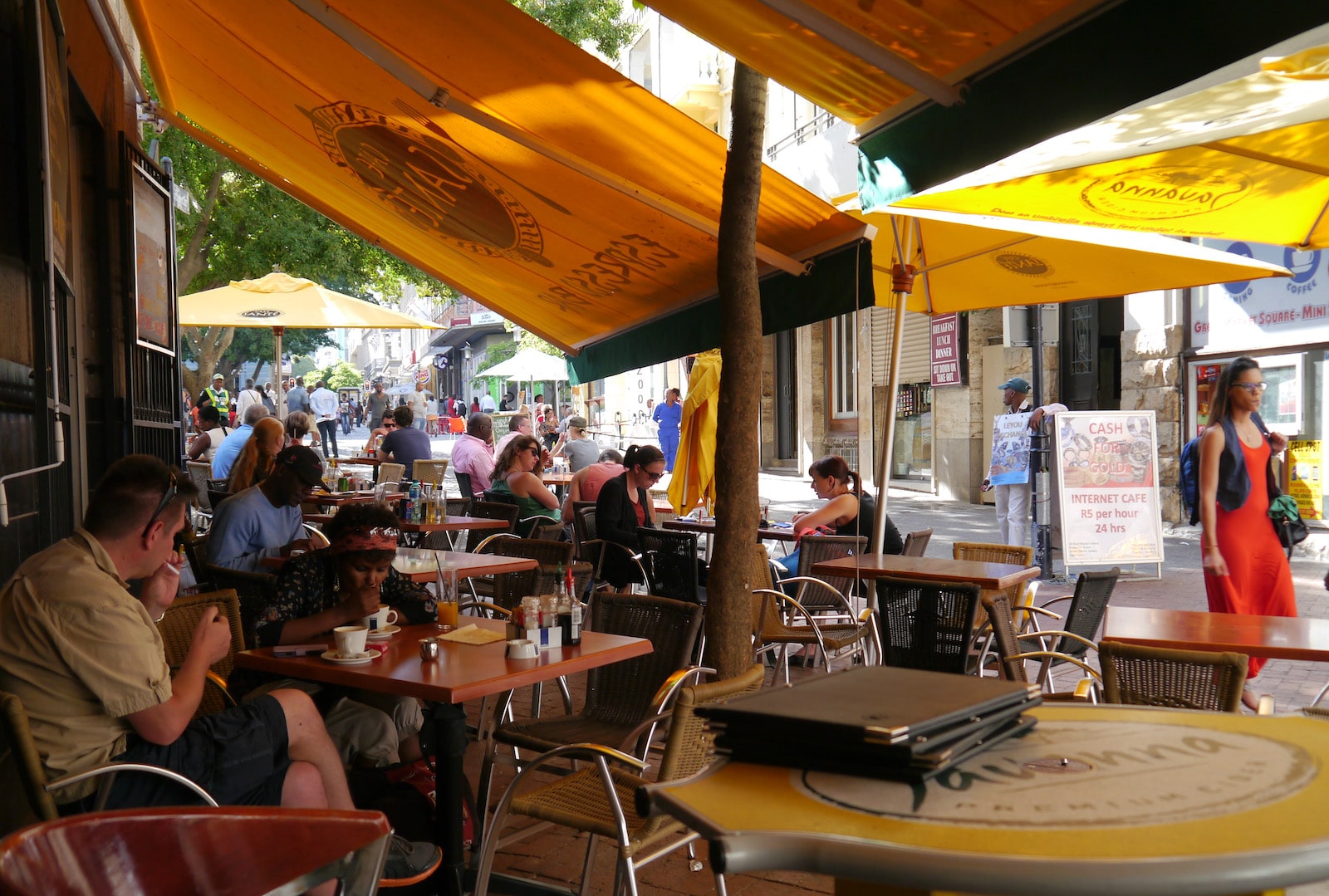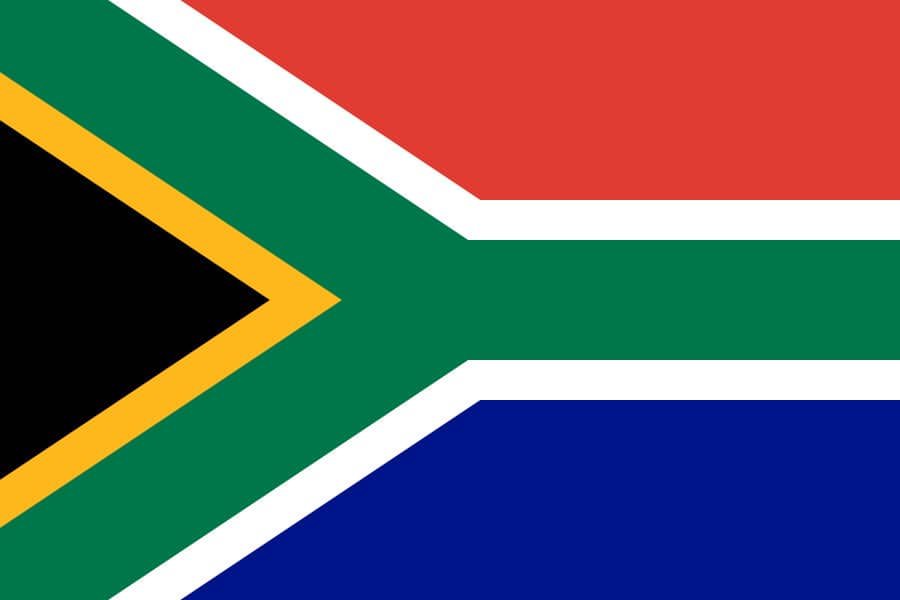Afrikaans is one of the most unique languages that you can learn, but if you’re traveling through Southern parts of Africa, it will be essential. Most famously spoken in South Africa, Afrikaans was derived from Dutch and adapted by indigenous tribes.
For many travelers visiting South Africa, learning the local lingo is essential to breaking the language barrier. By memorizing a few essential words and phrases in Afrikaans, travelers can better connect to the locals and their culture.
Modern times have made learning a foreign language easy because you can use apps, websites, and games to assist in pronunciation and vocabulary. However, it can still be challenging for travelers to identify and memorize key Afrikaans words and phrases.
Our article will help you learn basic Afrikaans, so you can conquer the language barrier and travel with ease. These need-to-know words and phrases will act as your survival kit in the Afrikaans language. With a strong grasp of basic Afrikaans, you’ll be able to fluently converse with the locals.
Countries that speak Afrikaans:
- Namibia – one of thirteen official languages
- South Africa – one of eleven official languages

Pronouns
Pronouns are identifying words that are essential in all languages to talk about yourself or others. All travelers should start learning Afrikaans by memorizing the proper pronouns. These pronouns will not only demonstrate your respect but also help you communicate with others.
Travelers need to feel comfortable with using pronouns in Afrikaans, even though they may be tricky to learn. Yet, travelers get a little break because, unlike in other foreign languages, there is no major distinction between formal and informal pronouns.
- I, Me — Ek
- You — Jy
- He, Him — Hy
- She, Her — Sy
- They, Them — Hulle
- Us — Ons

Questions
Curiosity is a common trait amongst travelers, which means that people tend to ask questions. These are the most common question words in Afrikaans, which you can use to ask for directions, information, and recommendations.
- Who? — Wie?
- What? — Wat?
- When? — Wanneer?
- Where? — Waar?
- Why? — Waarom?
- How? — Hoe?
Greetings
No matter the time of day, greetings are the best way to begin a conversation with someone or give your salutations. Greeting locals in their own language shows your respect and effort towards learning a new culture and language.
- Hello — Hallo
- Good morning — Goeie môre
- Good afternoon — Goeie middag
- Good evening — Goeienaand
- Nice to meet you — Aangename kennis
- Pleased to meet you — Lekker om jou te ontmoet
- Welcome — Welkom
- What is your name? (Informal) — Wat is jou naam?
- What is your name? (Formal) — Hoe heet u?
- My name is… — My naam is…
Farewell
At the end of a conversation, you should always say goodbye. These Afrikaans phrases are commonly used to say goodbye, so you can politely part ways with someone.
- Goodbye — Totsiens
- See you later — Sien jou later
- See you soon — Sien jou binnekort
- See you tomorrow — Sien jou môre
- Have a good day — Lekker dag
- Take care — Laat dit goed gaan
Small Talk — Feelings
Conversations should flow naturally and this often means that they progress past the point of a simple “hello”. When someone asks how you are doing, these phrases can help you respond or inquire about someone else’s feelings. A few of these phrases are also appropriate to use as a greeting.
- How are you? (Informal) — Hoe gaan dit met jou?
- How are you? (Formal) — Joe gaan dit met u?
- What’s up? — Hoe gaan dit?
- I am fine, how are you? — Ek is goed, en jy?
- Good, thank you, and you? — Goed, dankie, en met jou?
Small Talk — More Responses
Once someone asks about your feelings, it is important to be able to respond to their question. These are some of the most used phrases that you can use to describe how you feel to others. In formal situations or to be more polite, you can also say “dankie” or “thank you” at the end of a phrase.
- I am very well. — Ek is baie good.
- I am so-so. — Ek is so-so.
- I am a little tired. — Ek is ‘n bietjie moeg.
- I am sick. — Ek is siek.
Courtesy Words
Whenever you are in a conversation or asking a question, it is important to be polite and respectful. These courtesy words can help you show your respect to the locals and demonstrate your appreciation towards their country, culture, and language.
- Please — Asseblief
- Thank you — Dankie
- Thank you very much — Baie dankie
- You’re welcome — Dit is ‘n plesier
- I am sorry — Jammer
- Excuse me — Verskoon my
- Excuse me — Ekskuus
- Mister — Meneer
- Misses — Mis
- Miss — Mis
Common Phrases
Whenever you are deep in a conversation, these are the most common questions for phrases that travelers tend to encounter. Travelers can also use a few of these phrases to ask for help or directions when traveling around a new country.
- How old are you? — Hoe oud is jy?
- Where are you from? (Informal) — Waarvandaan kom jy?
- Where are you from? (Formal) — Waarvandaan kom u?
- I am from… — Ek kom van…
- What time is it? — Hoe laat is dit?
- How much does this cost? — Hoeveel kos dit?
- Who are you? — Wie is jy?
- What is this? — Wat is hierdie?
- Do you understand? — Verstaan jy?
- Do you speak English? — Praat jy Engels?
- Where is the bathroom? — Waar is die toilet?
- I need help. — Ek het hulp nodig.
- Enjoy your meal — Smaaklike ete
- Enjoy your meal — Lekker eet
- Cheers — Gesondheid
- Well done — Wel gedaan
- Don’t worry — Moenie bekommerd wees nie
Common and Useful Words
These are some of the most basic and commonly used words in Afrikaans, which are essential when you’re trying to expand your vocabulary. These words can be used to communicate with locals to eliminate any confusion that may occur with a language barrier.
- Yes — Ja
- No — Nee
- Of course — Natuurlik
- Always — Altyd
- Sometimes — Soms
- Maybe — Miskien
- Never — Nooit nie
- Left — Links
- Right — Regs
- Stop — Stop
- Hotel — Hotel
- Taxi — Taxi
- Food — Kos
- Water — Besproei
- Check or bill — Kyk
Colors
Colors are one of the most common ways to label objects because it is easy to identify things by their color. Learning the colors in Afrikaans can help you ask questions about a product or seek directions. Colors are also a great way to identify buildings and landmarks, so you can get around without getting lost.
- Red — Rooi
- Orange — Oranje
- Yellow — Geel
- Green — Groen
- Blue — Blou
- Purple — Pers
- Pink — Pienk
- Black — Swart
- White — Wit
- Grey — Grys
- Brown — Bruin
Days of the Week
Travelers are often schedule-oriented people because they fill their itineraries with plenty of bookings, reservations, and activities. Travelers who learn the days of the week can better manage their schedule and they are less like to experience any confusion with their bookings or reservations because they have memorized the days of the week in Afrikaans.
- Day — Dag
- Week — Week
- Monday — Maandag
- Tuesday — Dinsdag
- Wednesday — Woensdag
- Thursday — Donderdag
- Friday — Vrydag
- Saturday — Saterdag
- Sunday — Sondag
Other Phrases
While we have covered many common words and phrases in Afrikaans, here are a few more that you may hear while you are traveling.
- Okay — Ok
- Okay — Gaaf
- Come here — Kom hierheen
- My love — My liefde
- I love you — Ek het jou lief
- What are you doing? — Wat doen jy?
- Very good — Baie goed

Practice Makes Perfect
Travelers often see language as a barrier, but unfamiliar languages shouldn’t prevent you from exploring the world. Anyone can learn basic Afrikaans by putting a little time and effort into memorizing key phrases and words. With a small vocabulary of Afrikaans under your belt, you’ll be able to travel confidently and make strong connections with new people.
Practice makes perfect and travelers shouldn’t be afraid to speak and make mistakes. One of the best ways to learn Afrikaans is by practicing out loud. Locals will likely be more than happy to assist you in your pronunciation, so you can advance your skills and master any conversation.

